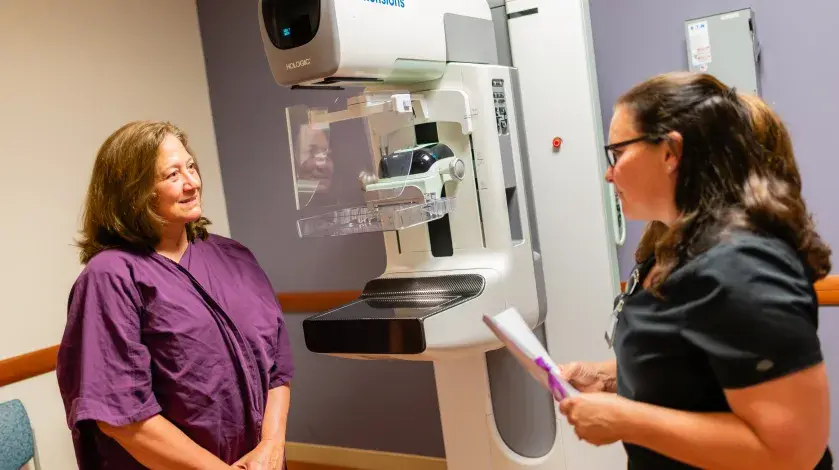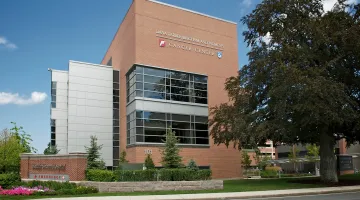Mammography
Contact Us
Schedule Appointment
781-624-4524
A mammogram is an x-ray of the breast that is used to detect and evaluate breast changes. Mammograms, in conjunction with breast examinations by a health professional and monthly breast self-exams, are the best means of detecting breast disease at its earliest stages.
All of our mammography centers are accredited by the American College of Radiology and South Shore Hospital’s breast imaging program is designated a Breast Imaging Center of Excellence by the American College of Radiology. We also offer 3D mammography at the Outpatient Imaging & Women's Specialty Center and South Shore Medical Center - Norwell. 3D mammography, or tomosynthesis, more easily detects cancerous tissue in dense breast tissue and can reduce the need for additional additional imaging. Learn more about the benefits here on our blog.
Our Approach
Our exams are performed exclusively by female mammographers and all mammograms are read by board-certified radiologists. We also offer advanced breast imaging and testing—including breast MRI and breast biopsy—for further diagnosis and treatment planning. Our breast Imaging Department also includes a Breast Imaging Navigator who helps ensure all patients receive timely diagnosis, treatment, and support. The Navigator also keeps in close contact with our patient’s primary care physician so they know what types of tests and follow-up care is recommended.
Our Health System also includes the Breast Care Center, offered in affiliation with Brigham and Women’s Hospital. The Center provides timely and supportive care for benign and malignant diseases of the breast.






